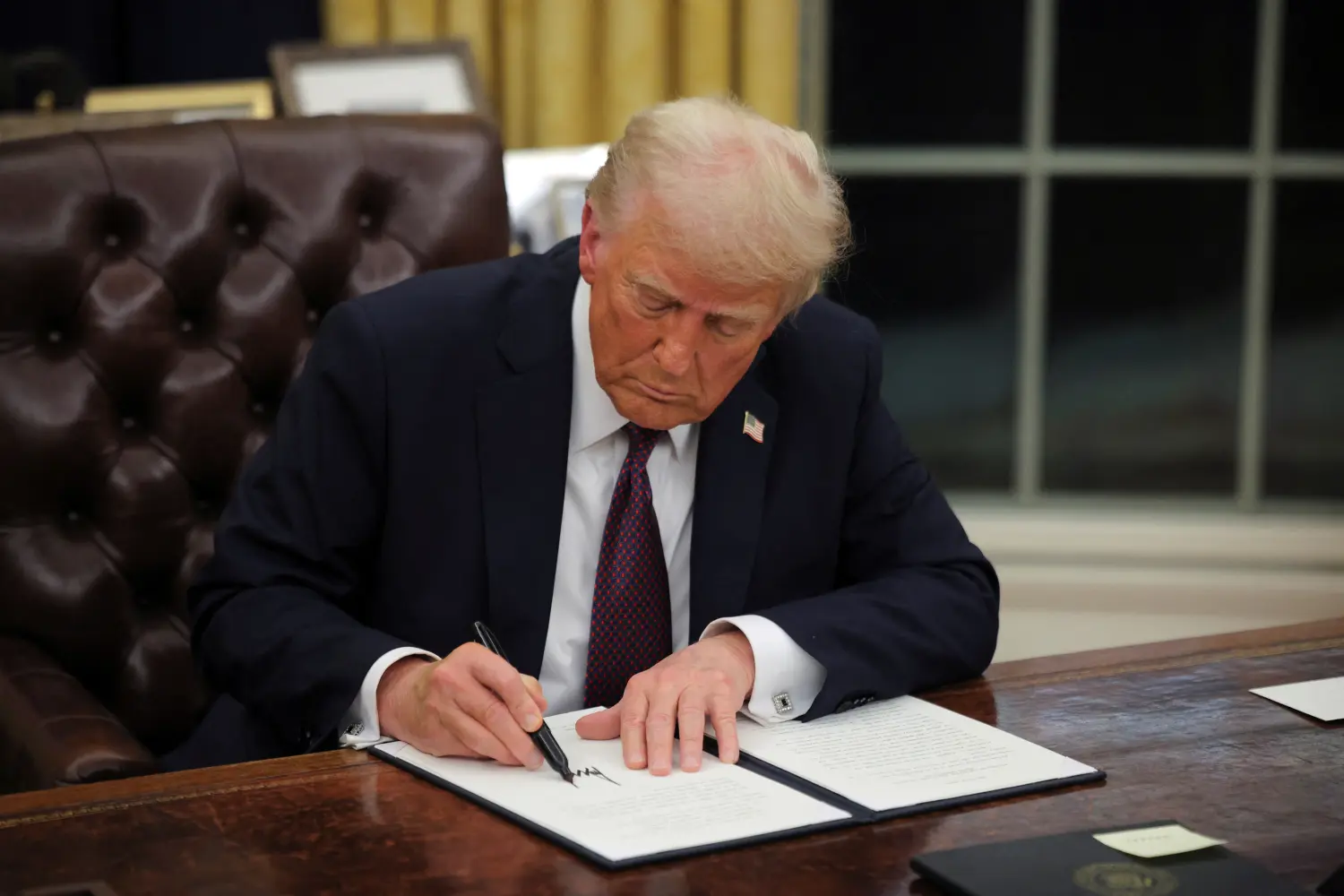Wall Street Joins Trump in Saudi Arabia to Court Gulf Billions
07.05.2025 18:00 2 min. read Alexander Stefanov
President Donald Trump is set to make his first overseas trip since returning to office, leading a high-powered U.S. delegation to Saudi Arabia, Qatar, and the UAE next week.
The mission: secure sweeping investment deals in energy, tech, and infrastructure, and convince Gulf nations to pour more capital into the U.S. economy.
The centerpiece of the visit will be the Saudi-U.S. Investment Forum in Riyadh on May 13, where Trump is expected to meet Crown Prince Mohammed bin Salman. Traveling with him are leaders from the upper echelons of finance and tech, including BlackRock’s Larry Fink, Citigroup’s Jane Fraser, Blackstone’s Steve Schwarzman, and Alphabet CFO Ruth Porat. IBM’s Arvind Krishna and Qualcomm’s Cristiano Amon will also be present, with crypto and AI advisor David Sacks representing the White House.
The forum’s agenda spans four focus areas: energy, artificial intelligence, advanced manufacturing, and finance. Trump is reportedly aiming to secure at least $1 trillion in commitments from Saudi Arabia and the UAE to bolster U.S. projects and businesses.
But Trump’s timing could prove challenging. Saudi Arabia is grappling with a widening budget deficit as oil prices plunge. Brent crude has dropped nearly 20% this year, pushing the kingdom into a $15.7 billion shortfall in Q1 2025—its largest in over three years. Goldman Sachs now estimates the annual gap could hit $67 billion, forcing the government to rely more heavily on borrowing.
Despite fiscal strain, Saudi Arabia continues to spend aggressively on its Vision 2030 transformation strategy, with major infrastructure projects and sovereign fund outlays pushing its oil breakeven point beyond $100 a barrel.
Trump’s visit comes as Riyadh intensifies efforts to become the region’s top investment hub, aiming to attract $100 billion in annual foreign direct investment by the end of the decade. Securing closer ties with the U.S.—especially on defense and technology—is a key component of that vision.
The trip is expected to accelerate talks around long-term U.S.-Gulf economic cooperation and deepen ties between Saudi Arabia’s ambitious future plans and America’s financial powerhouses.
-
1
U.S. PCE Inflation Rises for First Time Since February, Fed Rate Cut Likely Delayed
27.06.2025 18:00 1 min. read -
2
Key U.S. Economic Events to Watch Next Week
06.07.2025 19:00 2 min. read -
3
Gold Beats U.S. Stock Market Over 25 Years, Even With Dividends Included
13.07.2025 15:00 1 min. read -
4
U.S. Announces Sweeping New Tariffs on 30+ Countries
12.07.2025 16:30 2 min. read -
5
US Inflation Heats Up in June, Fueling Uncertainty Around Fed Cuts
15.07.2025 16:15 2 min. read
US Inflation Heats Up in June, Fueling Uncertainty Around Fed Cuts
U.S. inflation accelerated in June, dealing a potential setback to expectations of imminent Federal Reserve rate cuts.
Gold Beats U.S. Stock Market Over 25 Years, Even With Dividends Included
In a surprising long-term performance shift, gold has officially outpaced the U.S. stock market over the past 25 years—dividends included.
U.S. Announces Sweeping New Tariffs on 30+ Countries
The United States has rolled out a broad set of new import tariffs this week, targeting over 30 countries and economic blocs in a sharp escalation of its trade protection measures, according to list from WatcherGuru.
Key U.S. Economic Events to Watch Next Week
After a week of record-setting gains in U.S. markets, investors are shifting focus to a quieter yet crucial stretch of macroeconomic developments.
-
1
U.S. PCE Inflation Rises for First Time Since February, Fed Rate Cut Likely Delayed
27.06.2025 18:00 1 min. read -
2
Key U.S. Economic Events to Watch Next Week
06.07.2025 19:00 2 min. read -
3
Gold Beats U.S. Stock Market Over 25 Years, Even With Dividends Included
13.07.2025 15:00 1 min. read -
4
U.S. Announces Sweeping New Tariffs on 30+ Countries
12.07.2025 16:30 2 min. read -
5
US Inflation Heats Up in June, Fueling Uncertainty Around Fed Cuts
15.07.2025 16:15 2 min. read


